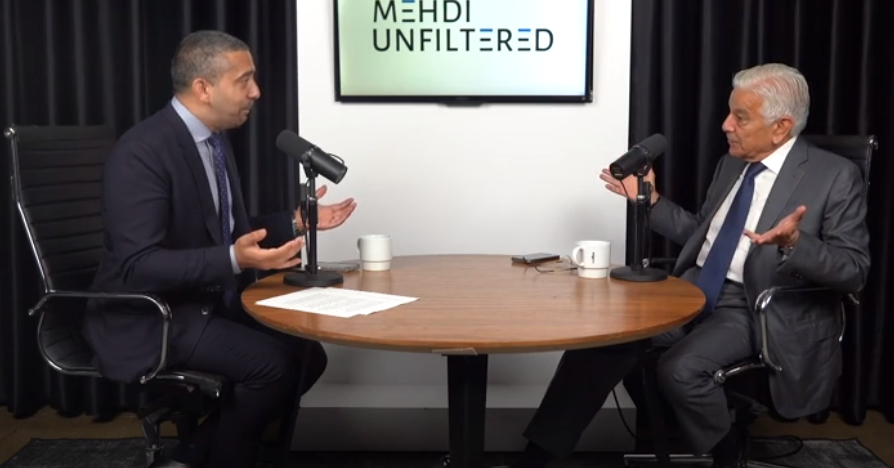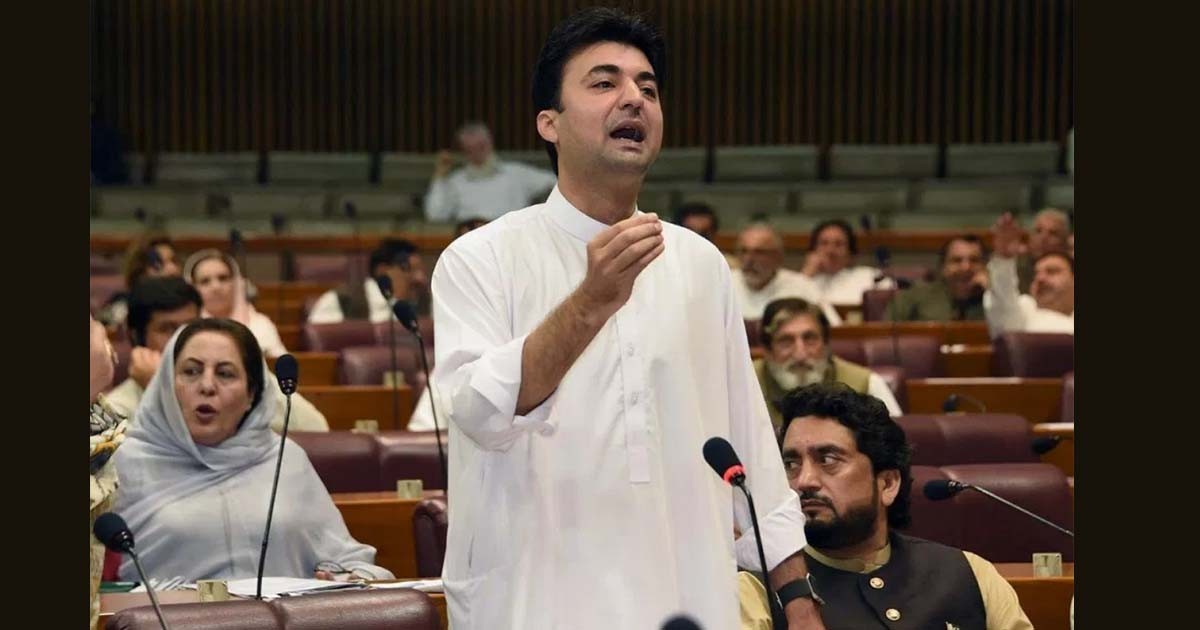Pakistan’s Defence Minister Khawaja Asif sat down with journalist Mehdi Hasan in New York for a wide-ranging and exclusive interview that touched on domestic politics, foreign policy, and Pakistan’s shifting alliances.
The discussion came at a critical moment for Pakistan — fresh off a historic defense agreement with Saudi Arabia, grappling with tensions with India, and under scrutiny for its treatment of jailed opposition leader Imran Khan.
Read more: Watch: Netanyahu’s UN Speech Met with Walkouts and Protests
Saudi Arabia Defense Pact and Nuclear Questions
Asif was pressed on last week’s landmark mutual defense agreement with Saudi Arabia, a nation that has long sought nuclear capabilities. Mehdi bluntly asked whether the pact meant Riyadh was now protected under Pakistan’s “nuclear umbrella.”
The conversation highlighted growing concerns about how the deal might reshape regional security dynamics, particularly in the Middle East.
Detention of Imran Khan
Mehdi also confronted Asif over the continued imprisonment of former prime minister Imran Khan, Pakistan’s most prominent opposition leader, who has been behind bars since August 2023.
“You just said it wasn’t tit for tat?”
I challenged Pakistani defense minister Khawaja Asif on the ongoing imprisonment of Imran Khan, which UN experts have called arbitrary and illegal. Is it just revenge, retaliation, by the Sharifs?
Full interview: https://t.co/O4MCnkqWJJ pic.twitter.com/ACsXYv0WHO
— Mehdi Hasan (@mehdirhasan) September 26, 2025
Despite condemnation from international watchdogs and UN experts calling Khan’s detention “illegal,” Asif defended the government’s position, refusing to acknowledge any wrongdoing. Mehdi asked pointedly: “What is your response to those UN experts while you’re here in New York for the UN?
Mehdi Hasan: According to Imran Khan’s lawyer, Salman Akram Raja, the trial was conducted over a WhatsApp call with no audio coming in or going out. Yet, somehow, the proceedings continued.
Khawaja Asif: That’s a lie. Imran Khan is running Twitter from jail.
Mehdi Hasan: But… pic.twitter.com/OEFQ5DgUCA
— Laiba 🇵🇰 (@thelaibaPTI) September 26, 2025
The interview turned to the disputed territory of Kashmir, where Asif suggested Pakistan’s openness to a referendum on independence. Hasan contrasted Pakistan’s willingness to criticize Israel with its silence on China’s persecution of Uyghur Muslims in Xinjiang.
Read more: ‘We turned 7 Indian fighter jets into scraps and dust’: PM Shehbaz to UNGA
Asif dodged direct criticism of Beijing, underscoring Pakistan’s strategic reliance on its eastern neighbor.
Mehdi Hasan was questioning Pakistan Defence Minister Khawaja Asif about who is more powerful in Pakistan whether it is Military Leader Asim Munir or Defense Minister Khawaja Asif.
Mehdi said, US Secretary of War Peter Hegseth can fire top American Military General. You can’t do… pic.twitter.com/vSQvdnxkPV
— Incognito (@Incognito_qfs) September 27, 2025
Balancing US and China
On relations with Washington, Mehdi reminded Asif of Pakistan’s controversial decision to nominate Donald Trump for the Nobel Peace Prize on June 20 — just a day before the US president ordered a military strike on Iran.
“Are you basically saying your strategic future is with China, not the US?”@mehdirhasan questions Pakistan Defense Minister Khawaja Asif on Pakistan’s ‘flirtatious’ relationship with the US. pic.twitter.com/Tvfi7Y2ALv
— Zeteo (@zeteo_news) September 26, 2025
“We have had a transactional or a flirtatious relationship with the United States for a very long time,” Asif admitted. Still, he stressed that Pakistan’s strategic future lies with China: “They’re reliable, and they are our neighbors.”
From its powerful military role in governance to its alliances with both the US and China, Pakistan remains a nuclear-armed Muslim-majority state at the center of global geopolitics. Mehdi’s interview with Khawaja Asif laid bare the contradictions and complexities shaping the country’s domestic and foreign policies today.
With additional input by GVS Intl Desk














